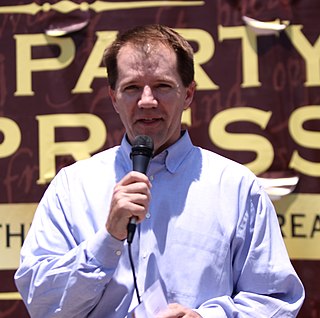A Quote by Andrew Scheer
I do believe that the U.K. over the years has given up a tremendous amount of sovereignty. The bureaucratic nature of the E.U., the different levels of government, the fact that court decisions in the U.K. can be appealed to a higher level of court in Europe, those are all things I don't think Canadians would ever accept for ourselves.
Quote Topics
Accept
All Things
Amount
Believe
Bureaucratic
Canadians
Court
Court Decision
Decisions
Different
Different Level
Different Levels
Europe
Ever
Fact
Given
Given Up
Government
Higher
Higher Level
Level
Levels
Nature
Ourselves
Over
Sovereignty
Things
Think
Those
Tremendous
Tremendous Amount
Up
Would
Years
Related Quotes
In fact, Native American Rights Fund has a project called the Supreme Court Project. And quite frankly, it's focused on trying to keep cases out of the Supreme Court. This Supreme Court, Justice Roberts is actually, hard to believe, was probably worse than the Rehnquist Court. If you look at the few decisions that it's issued.
Gorsuch, who is a U.S. Supreme Court nominee in the United States, said the real test of law is when a government can lose in its own courts and still respect the order. And I think Canadian need to ask is why would Canada, if it's doing everything right, why wouldn't you want to be watched? If they are contesting the fact that their own courts don't have jurisdiction over the government's human rights violations, then our next step is to go to federal court and find the federal government that can come to court and we will do that.
Over the past few years, the Supreme Court was six times more likely to accept cases from an elite group of 66 lawyers than it was from more than 99 percent of those who petitioned the court. That's the finding of a recent Reuters special report called "The Echo Chamber." It illustrates how almost half the appeals accepted by the court over a nine-year period came from this cadre of elite lawyers--many of whom have personal connections to the nine justices.
People whose terms go for five years or longer, like FCC commissioners. That's a higher standard. Then district judges, who are appointed for a lifetime but can be overruled. Then Court of Appeals judges. They're not the highest level, but they're almost the final word. And then, of course, the Supreme Court.
I have never concealed the fact and said it before the court in 1938 that I came from an anti-Semitic past and tradition... I ask only that you look at my life historically and take it as history. I believe that from 1933 I truly represented the Lutheran-Christian outlook on the Jewish question - as I revealed before the court - but that I returned home after eight years' imprisonment as a completely different person.
We often imagine that the court serves as a sort of neutral umpire controlling the warring political branches. But this is mostly myth. The justices of the Supreme Court are themselves actors in the struggle for power, and when they intervene, they think carefully about how their decisions will affect the court's own legitimacy and authority.
Americans revere both the Constitution and an independent Court that applies the document's provisions. The Court has done many excellent things in our history, and few people are willing to see its power broken. The difficulty with all proposals to respond to the Court when it behaves unconstitutionally is that they would create a power to destroy the Court's essential work as well.
As proof of this statement, consider this question: Have the people ever been known to rise against the Court of Appeals, or mob a Justice of the Peace, in order to get higher wages, free credit, tools of production, favorable tariffs, or government-created jobs? Everyone knows perfectly well that such matters are not within the jurisdiction of the Court of Appeals or a Justice of the Peace. And if government were limited to its proper functions, everyone would soon learn that these matters are not within the jurisdiction of the law itself.
We should start calling this law SCOTUScare ... [T]his Court's two decisions on the Act will surely be remembered through the years ... And the cases will publish forever the discouraging truth that the Supreme Court of the United States favors some laws over others, and is prepared to do whatever it takes to uphold and assist its favorites.


































